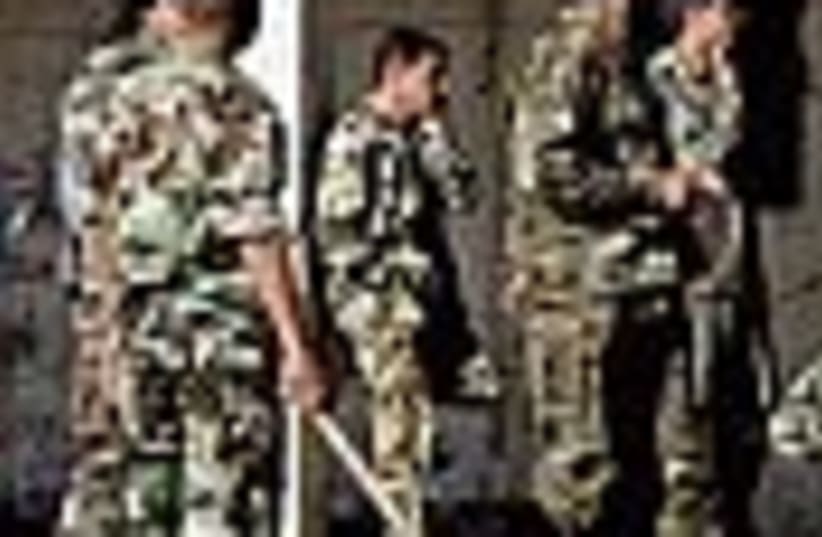Aridi told reporters after a Cabinet meeting that "the government expresses its readiness to send a 15,000-member Lebanese army force after occupation forces withdraw behind the blue line." He said that the Lebanese army is ready to accept help from the United Nations Interim Force in Lebanon that currently has 2,000 peacekeepers in south Lebanon.
The minister said the decision is a step toward ending the violence and said "military commanders ... have informed the Defense Minister about their readiness for the mission. ... The army is ready and we are not making nonsense statements."
Israel's Foreign Ministry spokesman Mark Regev said on CNN's "The Situation Room" that "this, in principle, is something, of course, we embrace and we support."
But Israel wants to know "the rules of engagement" and whether this means the Lebanese army is finally going to start disarming Hezbollah, he said.
"It's difficult for me to believe, as an Israeli, that Hizbullah is going to voluntarily disarm," Regev added.
Prime Minister Fuad Saniora has proposed that Lebanese troops deploy in the south quickly, with the backing of a beefed-up UN force, so that the Israeli military can withdraw as part of any cease-fire deal.
Lebanon is pressing for the United States to accept the arrangement and work it into a draft UN resolution on a cease-fire. So far, the draft prepared by the US and France only calls for a halt in fighting, leaving Israeli forces still in the south until a more powerful UN force can be deployed.
A Lebanese army statement called on retired officers and regular soldiers who completed service five years ago to report to various military sections across the country starting from August 10 to 16.
Violators of the decision will be prosecuted, the statement said.
The statement, carried by the official National News Agency, did not give the number of reservists called up to join the 70,000-strong army which has largely stayed out of the current fighting between Israeli troops and Hizbullah guerrillas.
A military official said the call-up in the first stage involved about 5,000 regular soldiers who had completed service five years ago.
If the need arises, the army would call up at a later stage some 10,000 recruits who have completed compulsory military service, the official said, speaking on condition of anonymity because he was not authorized to make statements to the media.
A ministerial source, also speaking on condition of anonymity, said the call-up of reservists was meant to fill gaps in some areas when thousands of troops are expected to be deployed on the border with Israel.
Hezbollah has said it will not abide by any cease-fire as long as Israeli troops remain in southern Lebanon. Israel says it won't halt its offensive unless Hezbollah rocket fire ends and won't pull out until an international force is in place.
Israel has not said whether it would pull out its troops if the Lebanese army deploys, backed by UN peacekeepers, as Saniora's proposals calls for.

